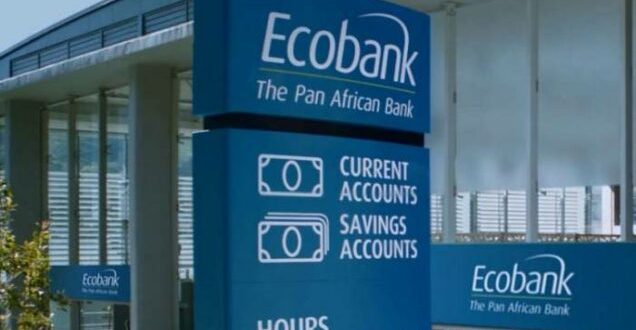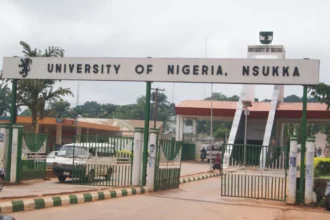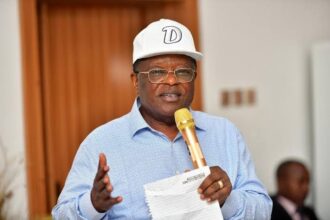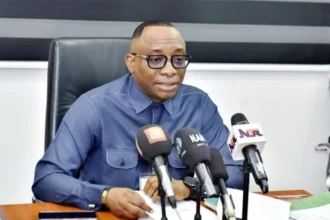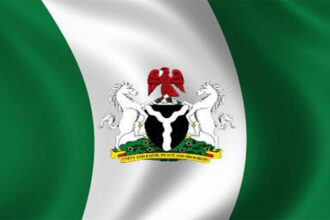
Credit ratings agency Fitch Ratings has downgraded Ecobank Nigeria’s viability rating to ‘f’ from ‘ccc.’
A viability rating assesses a financial institution’s intrinsic creditworthiness, including its standalone strength and capacity to weather economic downturns.
The downgrade of the viability rating to ‘f’ “reflects Fitch’s view that the bank has suffered a material capital shortfall, with its total capital adequacy ratio (CAR) being in breach of the 10% regulatory requirement since 2024 despite extensive regulatory forbearance,” the organisation said in a rating action commentary on Tuesday.
“Fitch believes ENG will need to strengthen capitalisation through extraordinary capital support or will need to continue operating with regulatory forbearance regarding its material capital shortfall due to its weak profitability and extremely high credit concentrations and problem loans,” it added.
Fitch, however, affirmed the long-term issuer default rating (IDR) of Ecobank Nigeria at ‘CCC.’ A long-term IDR measures an entity’s relative vulnerability to default on its long-term financial obligations. A ‘CCC’ rating indicates substantial credit risk.
In June, S&P Global Ratings lowered the bank’s long-term IDR to ‘CCC-‘ from ‘CCC’.
Audience Feedback Survey
The agency stated that it expected Ecobank Nigeria to pursue additional measures to strengthen its capital adequacy, such as issuing additional $150 million in additional Tier 1 (AT1) instruments.
“If the bank receives the capital injection from its parent within the next couple of months, we anticipate that it will no longer be in breach of the minimum CAR,” S&P Global Ratings said at the time.
On 9 July, Ecobank Transnational Incorporated, the parent company, announced the launch of $250 million AT1 qualifying instruments via a private placement of contingent convertible notes.
Fitch also lowered Ecobank Nigeria’s shareholder support rating (SSR) to ‘no support’ from ‘f’. An SSR indicates the possibility of an entity receiving extraordinary support from its shareholders in the event of financial distress.
It noted that the affirmation of the long-term IDR despite the VR and SSR downgrades indicates the ratings agency’s view that default risk has not materially increased.
READ ALSO: Ecobank Group seeks privileged investors for $250m capital raise
The organisation warned that default remains a real possibility, considering the significant capital shortfall and the risk of deposit withdrawals given the bank’s modest foreign-currency liquidity.
“However, despite these risks, Fitch believes the bank has sufficient liquidity to continue servicing its obligations, including the remaining USD150 million Eurobond payment due in February 2026,” Fitch stated.

